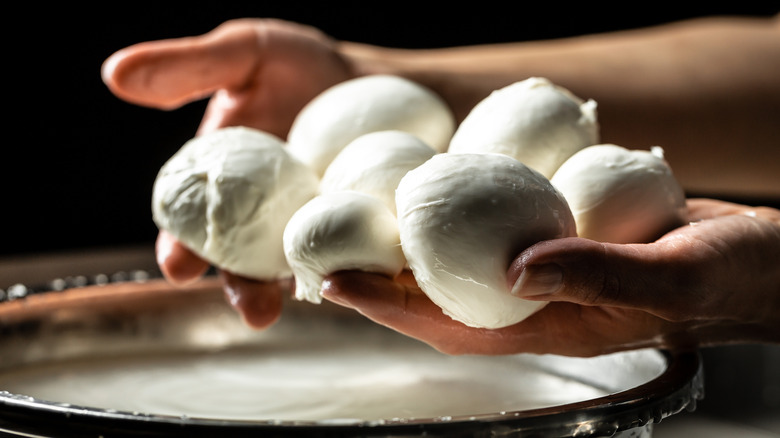The Reason Some Cheeses Melt Much Better Than Others
Whether you're looking for the ultimate cheeses to use for the perfect grilled cheese sandwich or a new cheese to use in a cheesy pasta bake or casserole, not all cheeses are as well-suited for melty dishes. While you might have some guesses as to why this is, there is a very specific reason some cheeses melt so much better than other kinds of cheese.
You might believe that a cheese's ability to melt has everything to do with its fat content, but that is actually just one component that can allow the dairy product to change states. According to Allrecipes, cheeses with a higher fat content are more likely to melt, but that is only part of the equation. Both moisture and age play a big role in how well cheeses can melt. But to really understand how and why some cheeses melt more easily, you need to know how these three things work together.
This is why some cheeses melt so easily
According to Serious Eats, cheese is, at its most basic interpretation, just fat from milk and water combined to make an "emulsion." Over time, these two components form stronger bonds, which is why fresh cheeses tend to melt better than older cheeses. And that's all because of the proteins and chemical bonds that form between the fat and water. As the cheese ages, it loses moisture, and it becomes harder to break the bonds to melt the cheese. That's why ingredients like parmesan cheese rinds stay in one piece when you add them to hot dishes for more flavor.
Softer cheeses and cheeses with a higher amount of water tend to melt far better than older, firmer cheeses that do not contain as much moisture. So, if it's the ultimate "meltability" you want, look for soft and semi-soft cheeses. They won't steer you wrong.

